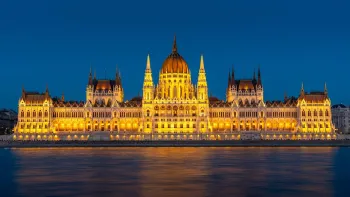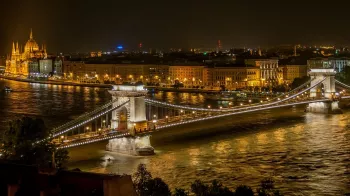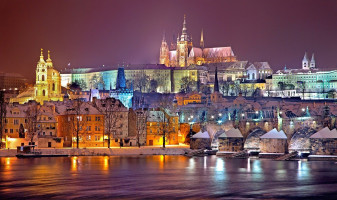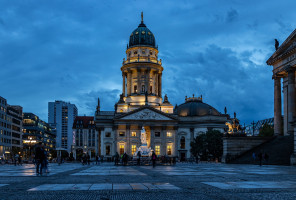Prague Travel Guide
Prague, the capital city of the Czech Republic, is a charming destination known for its stunning architecture, rich history, and vibrant culture. Situated along the Vltava River, Prague boasts a mix of Gothic, Baroque, and Renaissance buildings that showcase its diverse past. The city is famous for its medieval Old Town, Prague Castle, and the iconic Charles Bridge, making it a popular destination for tourists from around the world.Top Attractions in Prague
- Charles Bridge
- Prague Castle
- Old Town Square
- St. Vitus Cathedral
- Josefov (Jewish Quarter)
Prague is Famous for
Prague is famous for its medieval Old Town, Prague Castle, and the iconic Charles Bridge.Top Attractions in Prague
- Exploring the medieval Old Town
- Visiting the historic Prague Castle
- Strolling across the iconic Charles Bridge
- Admiring the stunning St. Vitus Cathedral
- Exploring the Jewish Quarter, Josefov
What's Great about Travelling to Prague?
- Rich history and architecture
- Great for culture and art enthusiasts
- Scenic views along the Vltava River
What's Not So Great about Travelling to Prague?
- Can be crowded with tourists, especially in peak season
- Language barrier for non-Czech speakers
- Some areas can be pricey for budget travelers
Travel Tips for Prague
- Check visa requirements before travel
- Use public transportation like trams and metro
- Be cautious of pickpockets in touristy areas
Important Prague trip information
- Ideal Duration: Spend at least 3-4 days to explore Prague fully
- Best Time to Visit: Visit in spring or fall for pleasant weather
- Nearby Airports and Railway Stations: Vaclav Havel Airport Prague (PRG) and Prague Main Railway Station
Top 44 Places to visit in Prague
Per Person
95,000
*EXCLUDING APPLICABLE TAXES 5.0 Ratings
( 28 Reviews )
( 28 Reviews )
Total
2,56,000
*EXCLUDING APPLICABLE TAXES 5.0 Ratings
( 24 Reviews )
( 24 Reviews )
Total
3,22,500
*EXCLUDING APPLICABLE TAXES 5.0 Ratings
( 24 Reviews )
( 24 Reviews )
Per Person
60,000
*EXCLUDING APPLICABLE TAXES 5.0 Ratings
( 393 Reviews )
( 393 Reviews )
Per Person
2,46,630
*EXCLUDING APPLICABLE TAXES 5.0 Ratings
( 393 Reviews )
( 393 Reviews )
Per Person
1,15,000
*EXCLUDING APPLICABLE TAXES 5.0 Ratings
( 28 Reviews )
( 28 Reviews )
FAQ's on Prague
Q1: What is the best time to visit Prague?
The best time to visit Prague is during the spring (April to June) and fall (September to October) when the weather is mild, and the city is less crowded. Spring brings blooming flowers, while fall showcases beautiful autumn foliage. Summer is peak tourist season with long days and many outdoor events, while winter can be cold but charming with Christmas markets. Consider visiting during shoulder seasons for a balance of good weather and fewer crowds.
Q2: Do I need a visa to travel to Prague?
Most tourists from the EU, USA, Canada, Australia, and other visa-exempt countries can visit Prague for up to 90 days within a 180-day period without a visa. However, it's essential to check the specific visa requirements based on your nationality before traveling. Make sure your passport is valid for at least six months beyond your planned stay.
Q3: What are the must-visit attractions in Prague?
Prague is known for its stunning architecture, including Prague Castle, Charles Bridge, Old Town Square with the Astronomical Clock, and the picturesque Lesser Town. Don't miss the historic Jewish Quarter, the beautiful Petřín Hill with its panoramic views, and the vibrant Wenceslas Square. Explore the city's rich cultural heritage by visiting museums, galleries, and enjoying a boat ride on the Vltava River.
Q4: Is Prague a safe place to travel?
Prague is generally safe for travelers, but like any major city, it's essential to be cautious of pickpocketing and tourist scams, especially in crowded areas. Avoid poorly lit streets at night and be aware of your surroundings. The city center and tourist areas are safe, but it's advisable to stay alert and take necessary precautions to ensure a trouble-free trip.
Q5: What is the local currency in Prague and can I use credit cards?
The local currency in Prague is the Czech Koruna (CZK). While some places accept Euros, it's best to have local currency for smaller transactions. ATMs are widely available, and credit cards are accepted in most hotels, restaurants, and shops in the city center. Notify your bank before traveling to avoid any issues with card usage abroad.
Q6: What is the local cuisine like in Prague?
Prague offers a mix of traditional Czech cuisine and international dining options. Try classic dishes like goulash, roast pork with dumplings, and trdelník (chimney cake) for dessert. Beer is a staple in Czech culture, with many local breweries offering excellent brews. Vegetarian and vegan options are also available in most restaurants, catering to diverse dietary preferences.
Q7: What transportation options are available in Prague?
Prague has an efficient public transportation system, including trams, buses, and the metro, making it easy to navigate the city. Taxis are also available but can be more expensive. Consider using ride-sharing services for convenience. Renting a bike is a popular way to explore the city, especially along the scenic riverbanks and through parks.
Q8: Are there any cultural norms or etiquette I should be aware of when visiting Prague?
When visiting Prague, it's important to greet people with a handshake or a simple "dobrý den" (good day). Respect local customs, such as removing your shoes when entering someone's home. When dining out, it's customary to round up the bill or leave a 10% tip. Dress modestly when visiting churches and religious sites. Most importantly, be polite, courteous, and open to experiencing the rich culture and history of Prague.
Q9: I am a travel agent. How can I buy travel leads of Prague?
Register yourself as a travel agent at agents.tripclap.com and then you can buy travel leads to Prague once your account is approved. For more details contact our support team at +91-8069186564 or support@tripclap.com





